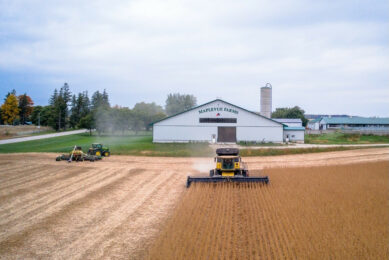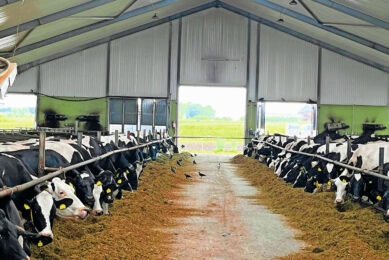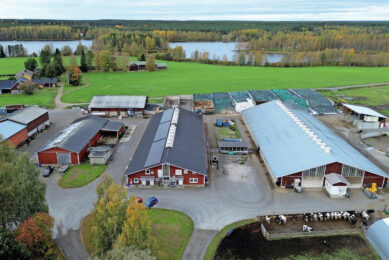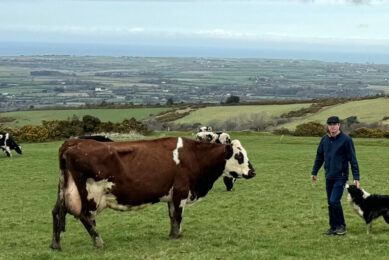Swiss dairy farmer gives insights into strict rules for Gruyere cheese
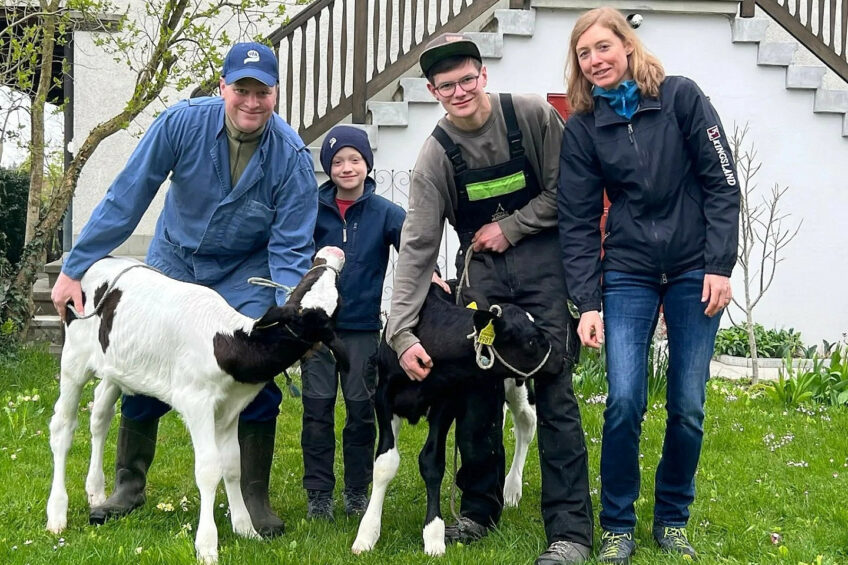
For Swiss farmers who produce the milk for the Gruyere cheese, the stipulations surrounding production techniques, are extremely strict and there is zero tolerance for deviation from the rules.
One of those farmers is Rene Durand, who milks only 22 cows with his wife Zoe and son Dominic. Their farm is quite a unique set-up totalling 37 hectares in 2 locations – Muhleberg and Niederhunigen – both in the area of Bern.
“We own 16 hectares which is now not so suitable to run a dairy enterprise from as it is in the middle of Niederhunigen village. It was bought by my parents in 2013. They were dairy farmers for 35 years and milked 24 cows there from 2013 to 2018. Since 2019, we keep around 40 young cattle there, including 5 in a breeding contract with another farmer,” said Rene.
Second dairy farm
Their second farm in Muhleberg is home to the dairy herd of 22 cows and has been leased by Rene since 2019. The fields are mostly in grass with some wheat, rapeseed, barley and corn grown for animal feed and 1.5 hectares of peas for human consumption.
Prices for the milk from Rene’s cows are among the highest in Switzerland, but that’s also because he has to stick to the strict regulations such as no silage feeding or robotic milking allowed.
“We run 22 Red Holstein cows,” Rene adds. “Our standard lactation over 305 days averages 10,555 kg per cow per year over the past 5 years. The milk is 4% butterfat, 3.4% protein and has a cell count of 60,000.”
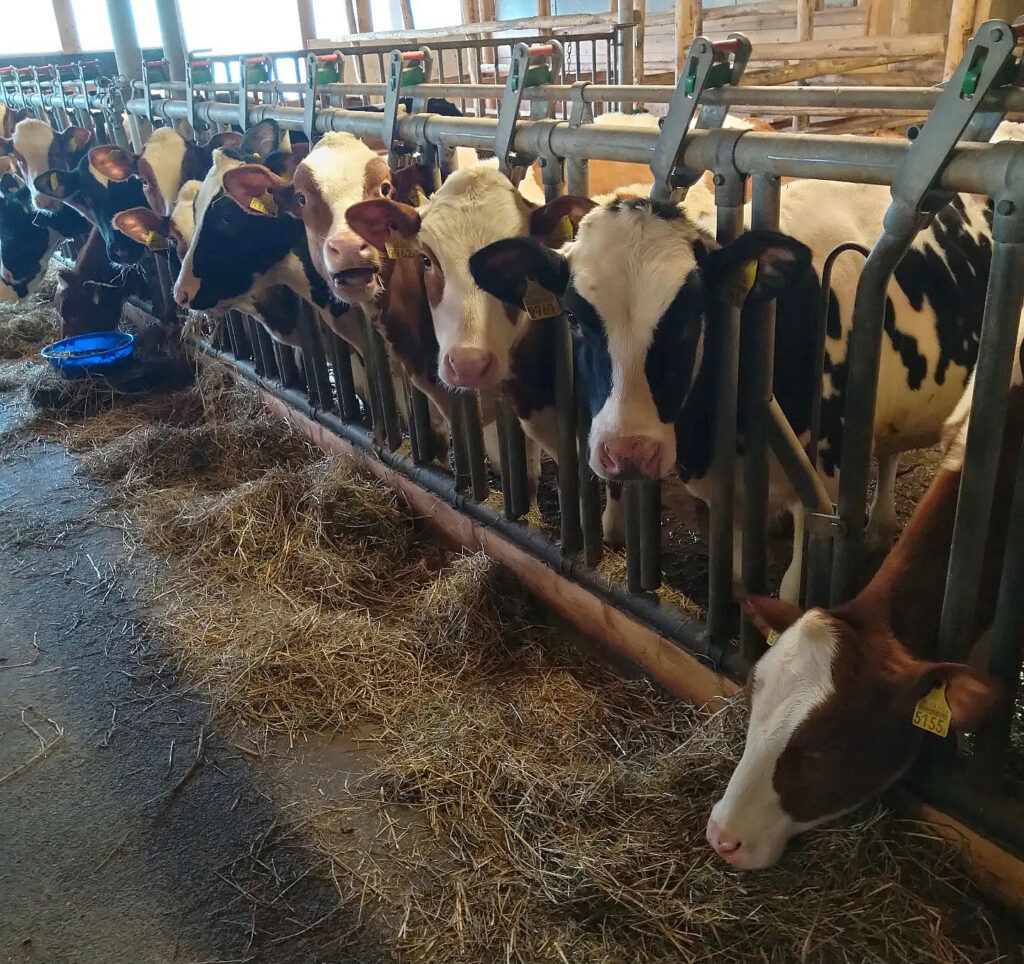
Regulations, feed and Gruyere cheese
Like most farmers in Switzerland, Rene farms under the ecological banner, which is called Ecological Performance Proof, OLN. This means they must fulfil certain farming obligations in order to reduce the environmental damage caused by agriculture. In addition to this, Rene must adhere to the production regulations set when producing milk for the Gruyere cheese, which can be challenging.
“As part of these regulations we are not allowed to feed the cows silage – only fresh grass and hay – an we can only milk them twice per day in a conventional milking parlour. No milking with robots is allowed,” Rene explained. “If milking is carried out more often, the lipase, or fat cells in the milk, is too weak and the cheese becomes rancid. In the winter, our cows are kept indoors in the tie-stall barn. We feed them dry grass cubes, sugar beet cubes, concentrated feed and molasses. They can move freely in the yard for 1 hour per day.”
Rene says that the summer period lasts for up to 8 months during which the cows eat at pasture for 4 hours per day. “They are also fed in the barn a diet comprising fresh grass, whole plant corn cubes, drought feed and concentrated feed.”
Genetics
Rene uses artificial insemination on all his cows using Red Holstein genetics and breeds strictly for milk quality, which is essential for good cheese production. “Despite the fact that we only milk 22 cows, between 25 and 30 cow calves are born each year,” said Rene, adding that many young cows are sold in their first lactation. “Depending on the year, 80-90% of the young cows go to the auction.”
Rene notes that livestock breeding is very important for the company. “We select the young cows very strictly. Since our milk is processed into raw milk cheese, the quality of the milk is very important.”
In typical Swiss style, Rene sends some cattle over 100 days old up into the Alps for summer grazing. Helping Rene on the farm is his wife Zoe, son Dominic, his parents Jakob and Ursula Durand, an employee as well as a part-time employee.
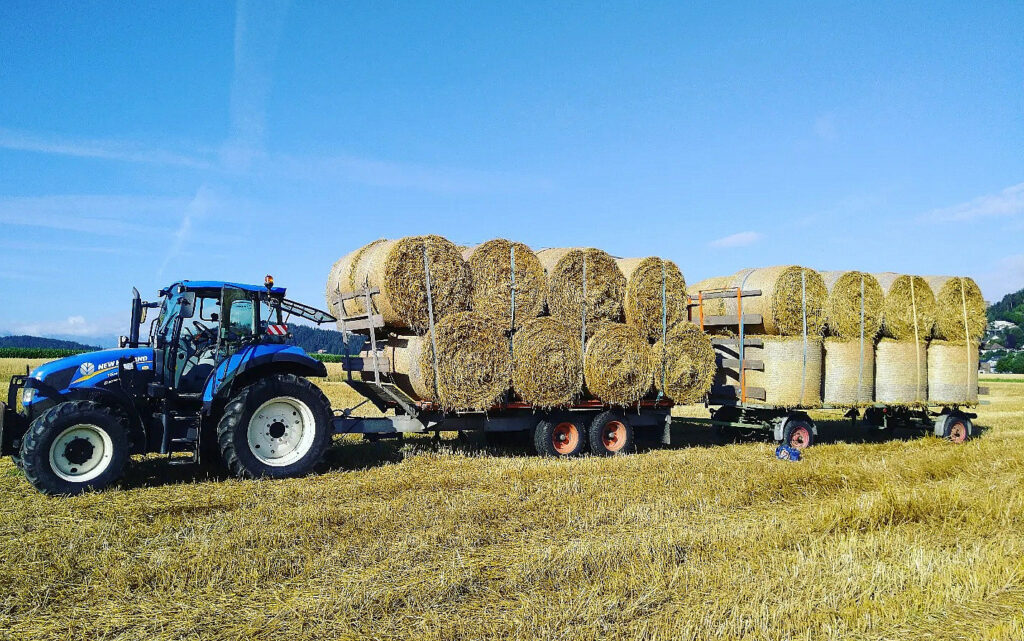
Milk
Rene’s cows are milked in an old Surge pipe milking machine. The milk to produce Gruyere cheese achieves the highest prices in Switzerland. The milk’s from Rene’s farm is sold in 2 batches. The first is A quantity, around 180,000kg, which sells for 90 centimes (UK£0.80/kg or €0,95), and the second batch, the B quantity, around 20,000kg, sells for 68 centimes (UK£0.60/kg or €0,72).
“We try to invest regularly in new technology for the dairy herd and facilities. During the last 5 years we have invested in the barn facilities to increase cow comfort. Also, I bought a dehumidifier to dry the hay quicker, an electric Kuratli feed mixer wagon, and a new loader wagon,” said Rene.
Any expansion for Rene is difficult as he is a tenant on the farm, but his wish is to buy a farm to secure the future of milking cows for his family.



